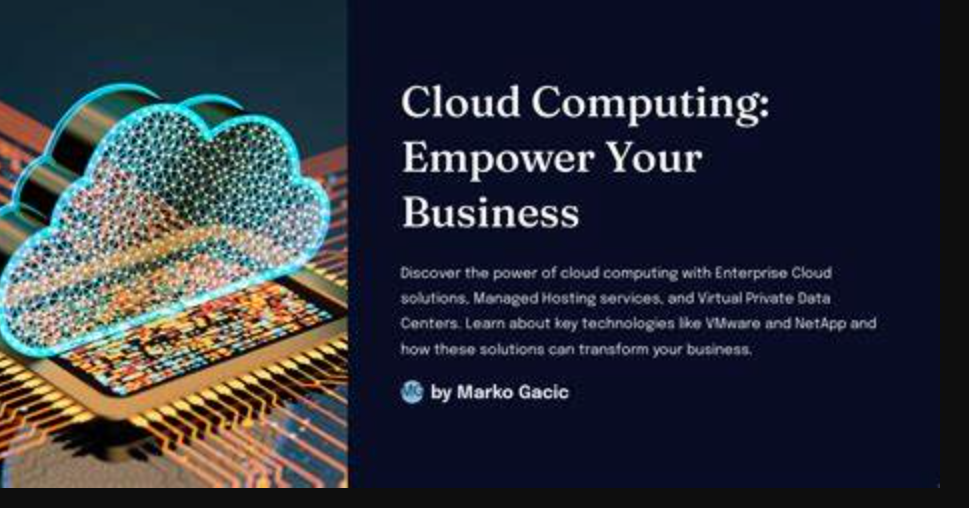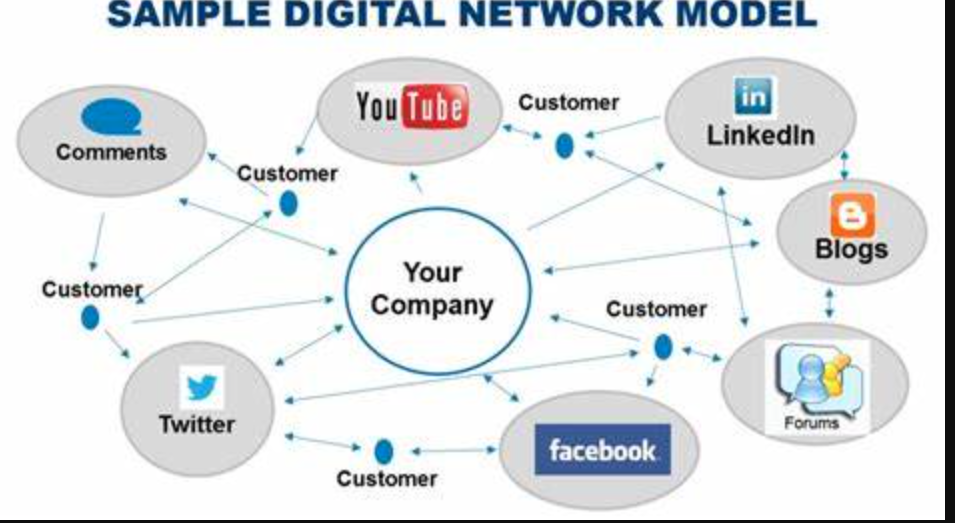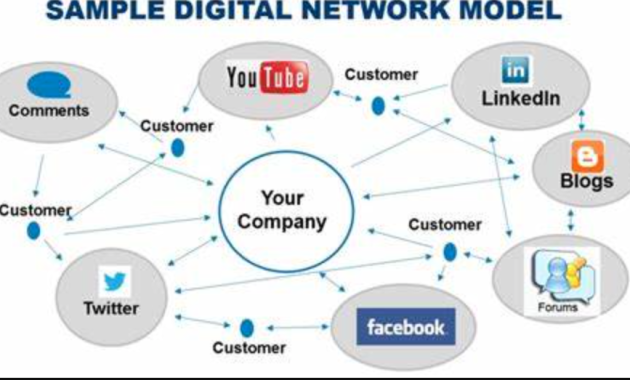icyberzone.xyz – In today’s Empowering Business , speed, quality and cost are paramount. This is where cloud computing emerges as a game changer. Enterprise cloud computing offers a modern approach to IT infrastructure, allowing organizations of all sizes to access computing resources such as storage, servers, databases and software over the Internet.
Empowering Business: Advantages cloud computing
Cloud solutions offer many benefits that can transform your business. Let’s look at some of the main advantages:
- Scalability: Cloud computing allows businesses to scale up or down their infrastructure as their needs grow. This eliminates the need for upfront investment in expensive hardware and software, making it ideal for startups and businesses with advanced needs.
- Improve collaboration: Cloud-based applications facilitate collaboration between teams regardless of their location. With real-time access to shared documents and resources, teams can work more effectively and efficiently.
- Improved cost performance: Cloud computing operates on a pay-as-you-go model, reducing the need for capital expenditures on hardware and software licenses. Companies only pay for the equipment they use, which is a significant savings.
- Automatic Updates and Updates: Cloud servers provide all software updates, security patches and device updates, etc. processed Free up your IT team to focus on more strategic activities.
- Disaster Recovery and Business Continuity: Cloud computing ensures security and availability in the event of hardware failure or natural disasters. With reliable data available, businesses can recover faster and reduce downtime.
- Mobile Proliferation: With connected devices, employees can access critical business information and resources from any Internet-connected device, improving work flexibility in addition to increasing productivity.
Cloud solutions in the company

The cloud computing environment offers a variety of solutions designed to meet specific business needs. Here is an overview of some popular examples of cloud services:
- Software as a Service (SaaS): This widely used model provides access to the required software over the Internet. Examples include customer relationship management (CRM) tools, project management platforms, and software solutions such as Microsoft 365 or Google Workspace.
- Platform as a Service (PaaS): PaaS provides a platform environment for developing, deploying and managing shared applications. Developers can use tools and resources without worrying about technical or installation issues.
- Infrastructure as a Service (IaaS): IaaS provides on-demand access to specialized resources such as servers, storage, and networks. Companies have complete control over operating and control systems, providing greater flexibility for specific IT needs.
The cost of cloud computing for Empowering Business
Although cloud computing offers cost savings, it is important to understand the cost structure. Some common examples of cloud pricing include:
- Plus: This model provides companies with flexibility and cost-effectiveness based on the resources they use.
- Background: Some cloud services require a monthly or annual fee to access certain features or functions.
- Cost per user: Some cloud services charge per user.
A thorough analysis of your business needs and choosing the right pricing model will ensure you make the right purchase. Additionally, many cloud providers offer free trials or free options, allowing businesses to test the waters before committing to a paid plan.
Cloud business security
Security is a major concern for Empowering Business planning to move to the cloud. However, large cloud service providers invest heavily in robust security measures such as data encryption, access controls and regular security audits. Cloud infrastructure often benefits from economies of scale and allows service providers to implement advanced security policies that may not be possible for small businesses that manage their own IT infrastructure.
Is cloud computing right for my business?
Cloud computing is an end-to-end solution that benefits businesses of all sizes and in all industries. However, it’s important to consider your needs before moving to the cloud. Some factors to consider are:
- Business Size: Cloud solutions are suitable for all types of businesses, from startups to large enterprises.
- IT needs: Businesses with complex IT needs may need a hybrid cloud approach that combines on-premises infrastructure with cloud services.
- Budget: Cloud computing offers cost-effectiveness compared to traditional IT infrastructure, but it’s important to assess your budget and choose an appropriate pricing model.
- Data security: Companies that work with sensitive data should make sure that the cloud provider adheres to strict privacy rules and offers strong security measures.
Go to the cloud
If you’ve decided to move to cloud computing for your business, follow these steps to ensure a smooth transition.
Define your needs: Determine your business goals and determine the most appropriate IT solutions.
- Choosing a Cloud Provider: Research and compare different cloud providers based on pricing models, security features, customer support, and industry experience. Popular cloud providers include Amazon Web Services (AWS), Microsoft Azure, and Google Cloud Platform (GCP).
- Develop a migration strategy: Carefully plan the migration process, considering factors such as data security, minimizing downtime, and employee training. A phased approach can be useful, starting with data before migrating non-critical applications and sensitive data.
- Invest in training: Make sure your employees are comfortable with cloud-based tools and applications. Cloud providers often offer training resources and support programs to make the transition smooth.
The future of cloud computing
Cloud computing is evolving rapidly with the constant development of technology and the services it offers. Here are some interesting trends shaping the future of the cloud.
- Hybrid and multi-cloud environments: Companies are increasingly adopting a hybrid cloud approach that combines on-premises infrastructure with public cloud services. This provides flexibility and allows companies to meet specific needs. In addition, multi-cloud approaches using multiple cloud providers become attractive, increasing scalability and resources.
- Artificial Intelligence and Machine Learning (AI/ML): Cloud platforms play an important role in the development and deployment of AI/ML applications. The massive computing power and storage capacity offered by cloud infrastructure enables companies to leverage AI/ML capabilities for tasks such as data analysis, process automation, and predictive modeling.
- Edge computing: The integration of edge computing with cloud services is a major development. Edge computing involves processing close to the source of the data, usually on a device or local server. This reduces latency and improves the performance of applications that require real-time data processing. Cloud platforms can aggregate, analyze and store large amounts of data.
Conclusion
Cloud computing has become an essential tool for all types of Empowering Business , changing the way they operate and compete. By increasing flexibility, cost savings and collaboration, companies can achieve greater agility and innovation in the digital age. As cloud technologies evolve, companies can rely on more powerful and comprehensive solutions to improve operations and achieve success.
- 3 Effective Management Techniques: Leading Your Team to Success - July 7, 2024
- 10 Digital Marketing Analysis: Discover secrets online success - June 13, 2024
- Social Media: Key Marketing Success in 2025 - June 13, 2024













